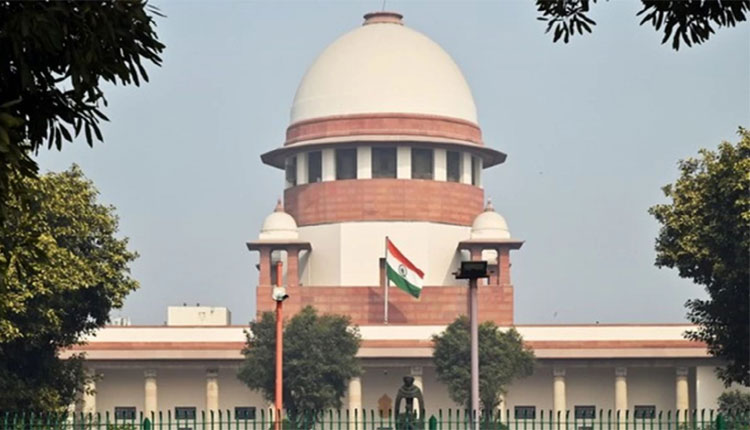New Delhi: In a pivotal ruling that has heightened tensions in poll-bound Bihar, the Supreme Court on Monday refused to extend the September 1 deadline for filing claims and objections in the Special Intensive Revision (SIR) of the state’s electoral rolls.
While denying the pleas of the Rashtriya Janata Dal (RJD) and All India Majlis-e-Ittehad Muslimeen (AIMIM), the court urged political parties to actively assist voters and directed the Bihar State Legal Services Authority to deploy para-legal volunteers to ensure a transparent process, amid allegations that the Election Commission of India (ECI) is falling short on its own protocols.
A Deadline Upheld, But Flexibility Assured
The Supreme Court, led by Justices Surya Kant, Joymalya Bagchi and Vipul M Pancholi, heard arguments from the RJD and AIMIM, who sought an extension to September 15, citing challenges like Bihar’s ongoing flood crisis. The ECI, represented by senior advocate Rakesh Dwivedi, countered that extending the deadline would disrupt the meticulously planned schedule, with the final voter roll set for release on September. 30. However, the ECI offered a crucial concession: claims and objections can still be filed after September 1 and will be considered until the last date of nominations, ensuring no eligible voter is excluded.
The court recorded the ECI’s assurance, noting, “The process of considering claims and objections continues until nominations close, with all inclusions and exclusions integrated into the final roll.” To bolster inclusivity, the bench ordered the Bihar State Legal Services Authority to mobilise para-legal volunteers by Tuesday afternoon to assist voters and parties in submitting online claims, objections, and corrections. These volunteers will submit confidential reports to district authorities, collated at the state level for further review.
Transparency Under Scrutiny
The hearing saw sharp exchanges over the ECI’s handling of the SIR, which has excluded approximately 65 lakh voters from the draft roll published on August 1, reducing Bihar’s voter count from 7.89 crore to 7.24 crore. Advocate Prashant Bhushan, representing the Association for Democratic Reforms, accused the ECI of flouting its own guidelines, particularly on transparency. “The ECI is not following its own manual,” Bhushan argued, pointing to the lack of clarity on why voters were removed, with reasons ranging from death to duplicate entries or migration.
Justice Kant pressed the ECI on its verification process, questioning, “If you find discrepancies in 100 out of 1,000 voters verified today, will you wait until September 25 to disclose them?” The ECI clarified that notices for discrepancies are issued within seven days, emphasising that 99.5% of the 7.24 crore electors have submitted documents, with verification ongoing until September 25. The court stressed that the ECI’s manual procedures are an “institutional commitment” that must be upheld.
Political Parties Under Fire
The court expressed surprise at the low engagement from political parties, noting that only 128 claims were filed by parties, with 103 seeking deletions and just 25 for inclusions. The RJD, represented by advocate Shoab Alam, submitted only 10 claims, while the CPI(M-L) filed 15 for inclusion and 103 for exclusion. Justice Kant remarked, “Despite our orders, political parties are bringing just 100-120 names. Why are they demanding deletions instead of helping excluded voters?”
The ECI defended its process, stating that 2.7 lakh names are slated for removal, primarily due to deaths or voluntary requests from voters enrolled elsewhere. It highlighted that booth-level agents (BLAs) have access to Absentee, Shifted, and Dead (ASD) lists, and no voter is excluded without due process. Bhushan, however, argued that post-September 1 submissions might not make the final roll, a concern the court dismissed, affirming the ECI’s ongoing process.
A Broader Battle For Trust
The SIR, the first intensive voter roll revision in Bihar since 2003, has sparked controversy, with Opposition parties alleging it risks disenfranchising millions. The court termed the issue a “trust deficit,” urging parties to bridge the gap through grassroots efforts. With Bihar’s floods adding complexity, the deployment of para-legal volunteers aims to ensure no voter is left behind. As the state prepares for elections, the Supreme Court’s ruling underscores a delicate balance: maintaining electoral integrity while safeguarding every citizen’s right to vote.



Comments are closed.